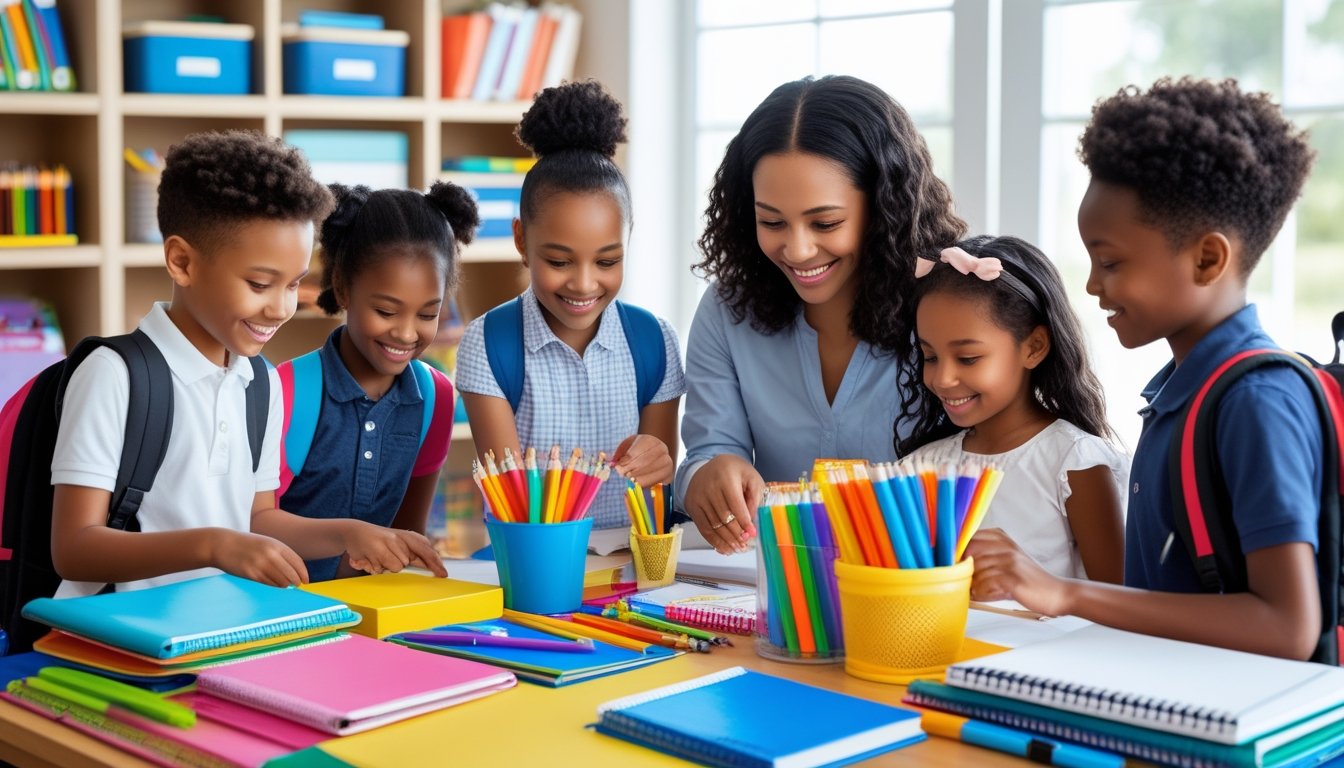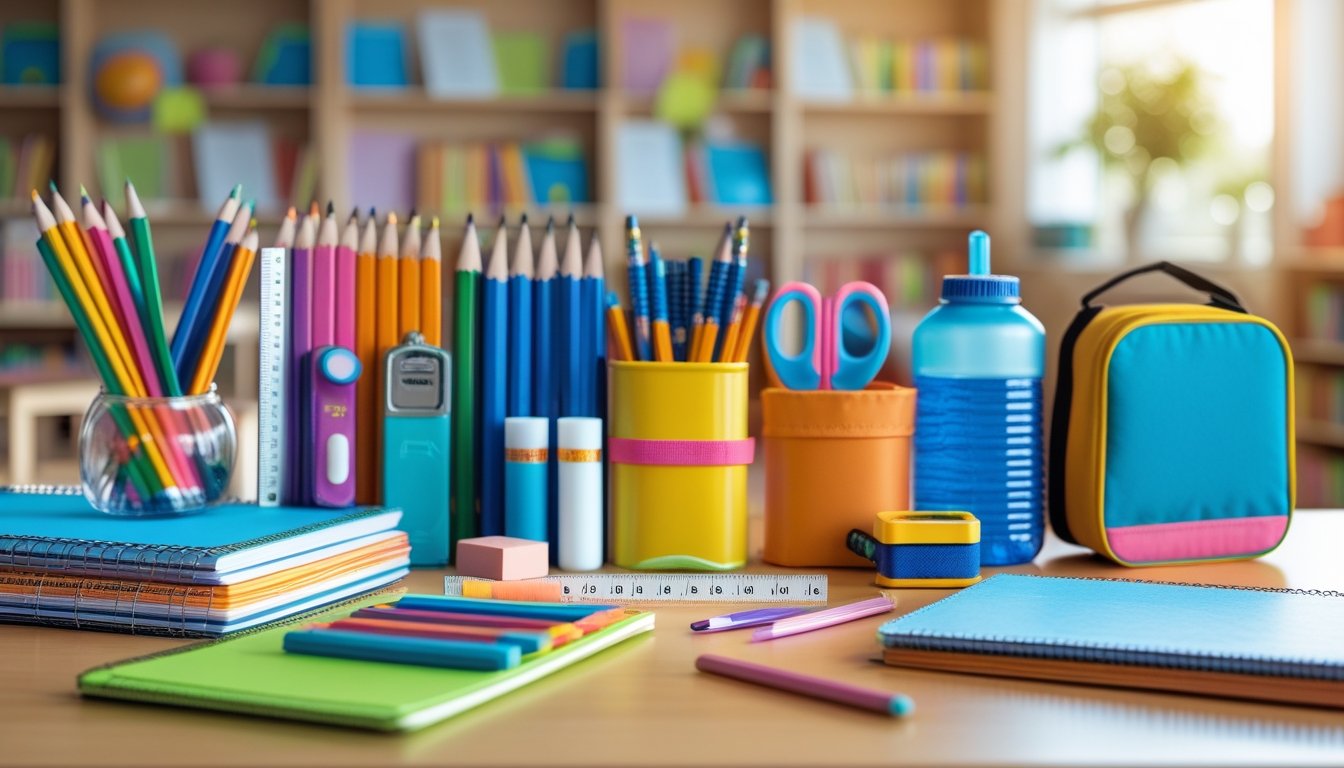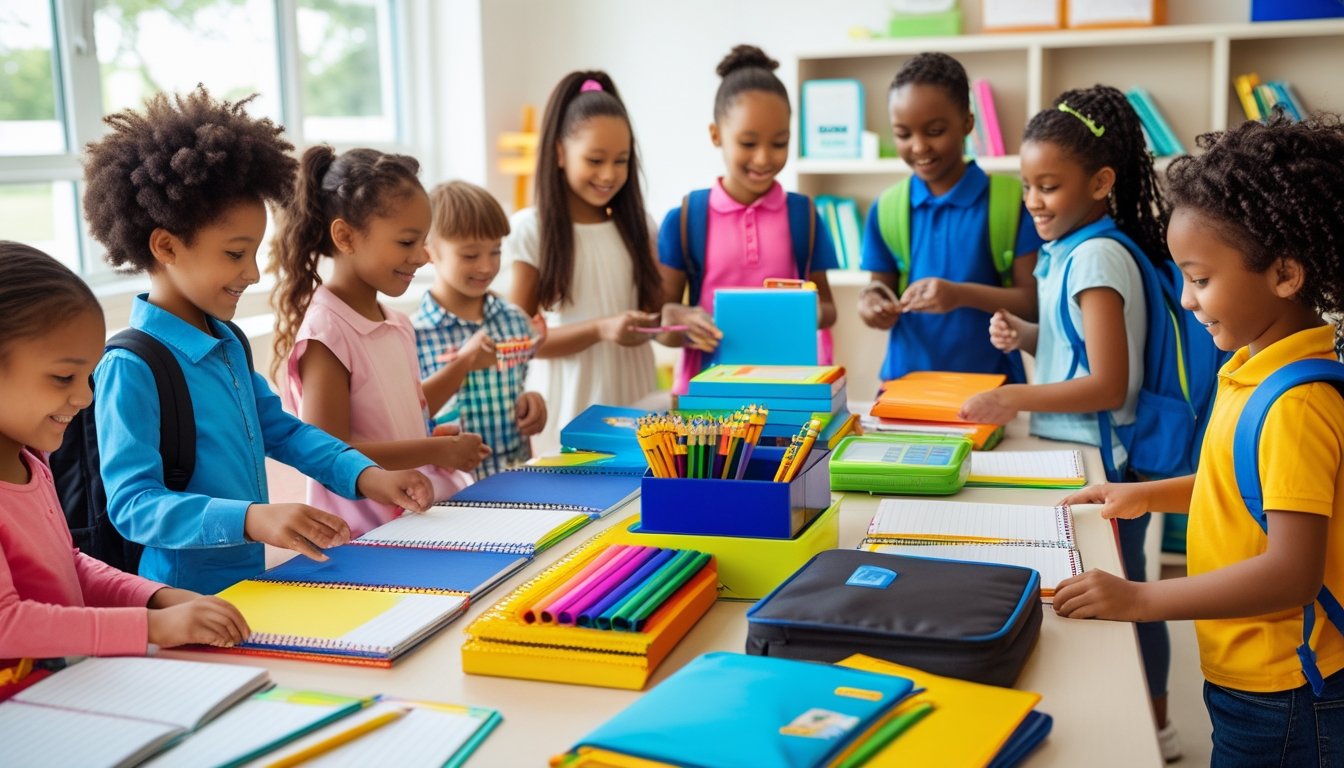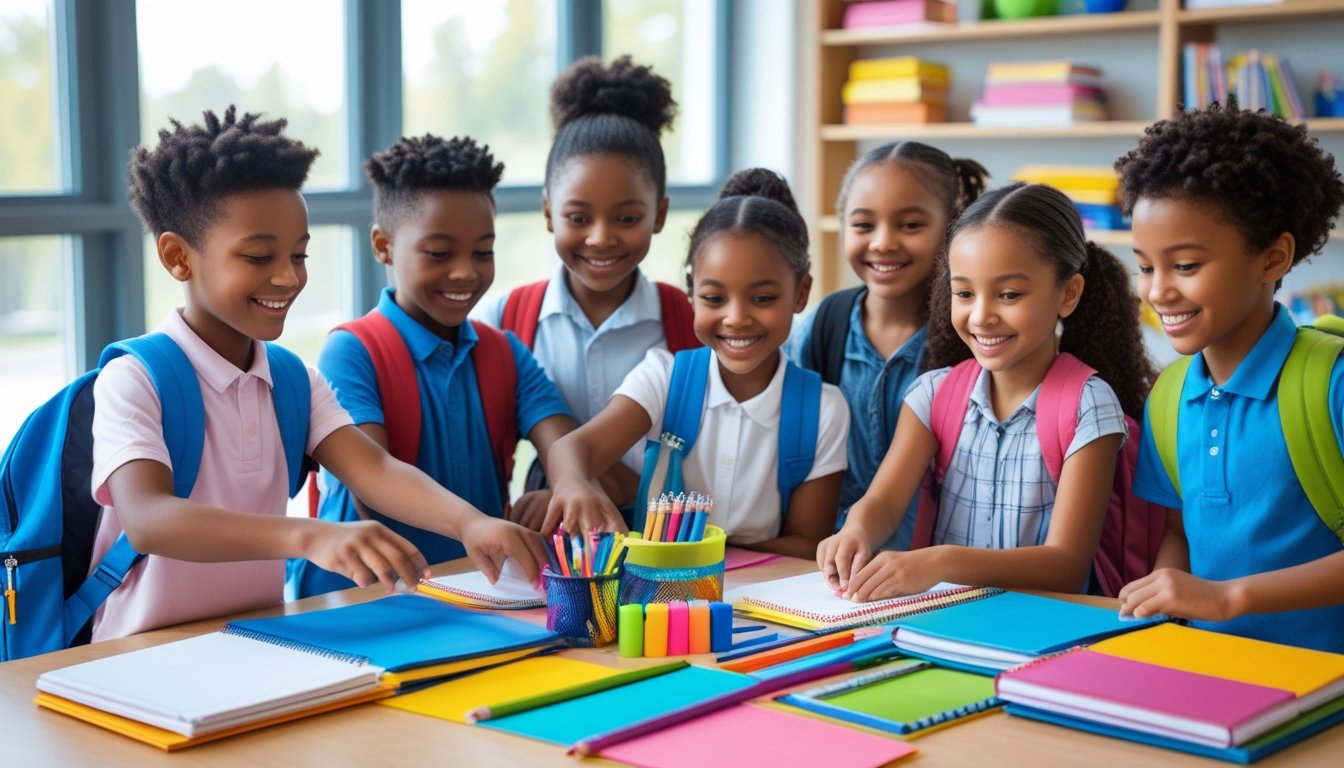Late updated: 26 Jun 2025 08:06
Written by:
How To Choose The Best School Supplies For Children: A Comprehensive Guide
Navigating the world of school supplies can often feel overwhelming for parents and guardians, as there are countless options available. The key to choosing the right supplies lies in focusing on both practicality and the specific needs of our children. Consider the child's age and school requirements to ensure that we provide them with the items that will enhance their learning experience. With the right tools, students can be better organised, manage their time more efficiently, and ultimately thrive in their educational environment.

For younger children, essentials like crayons and construction paper can inspire creativity and make learning exciting. As they progress to middle school, organisational tools become paramount as they deal with multiple subjects and classrooms. Practicality blends with style when it comes to selecting a supportive backpack and reliable technology like a Chromebook for older students. Striking the right balance between cost-effectiveness and quality is crucial to keeping our budget in check while still meeting the growing demands of a child’s education.
Key Takeaways
- Focus on age-specific needs and school requirements.
- Balance cost-effectiveness with quality for different age groups.
- Organisation tools are crucial as children progress through school.
Essential School Supplies Every Child Needs

As we prepare our children for the new school year, having the right tools is crucial to their success. Core stationery, organisation tools, art materials, and health essentials all contribute to a productive and enjoyable learning experience.
Core Stationery and Writing Tools
Every student's desk should have a supply of notebooks, pens, pencils, and erasers. These are the basics for taking notes and completing assignments. Highlighters help make key details stand out, and a pencil sharpener ensures a sharp point for precision. Depending on the age, a three-ring binder with subject dividers can keep different subjects organised. Loose-leaf paper is also handy for jotting down notes or doing rough calculations. For mathematics, graph paper is essential, making complex tasks simpler.
Organisation and Storage Essentials
Good organisation sets the foundation for effective study habits. A backpack to carry everything is essential, and using plastic folders or pocket folders can separate different subjects or projects. A pencil case or pencil box keeps writing tools in one place. Consider including a calendar for tracking important dates and assignments. Having a binder helps keep papers neat, and using index cards can aid in study sessions. To protect textbooks, book covers are an excellent addition.
Art and Creative Materials
Creativity is a vital part of a child's development. Essential materials such as crayons, coloured pencils, and washable markers allow students to experiment with different colours and textures. Permanent markers can be used for labelling items. For crafting or projects, construction paper, scissors, and glue sticks should be included. A ruler is useful for precise measurements and creating straight lines. These materials encourage personal expression and help with project completion.
Health and Meal-Time Necessities
To keep our children energised, a lunch box or lunchbag is a must for carrying meals and snacks. Hydration is important, so include a water bottle. Packing tissues is practical for everyday spills or sniffles. Being prepared with these essentials helps ensure our children are healthy and ready to focus on their studies throughout the day. Meals and personal hygiene are as important as academic supplies in fostering a successful school experience.
Choosing the Best Supplies for Different Ages and Budgets

Selecting the right school supplies involves considering age-appropriate needs and finding the best options within your budget. It's about balancing practicality, quality, and cost-effectiveness to prepare students for the school year.
Selecting Supplies for Primary and Early Years
For young children, purchasing the correct items can influence their educational experience significantly. It's crucial for us to invest in durable supplies that can withstand the rigours of daily use. Essential items often include crayons, non-toxic glue sticks, and blunt-tip scissors. These tools encourage creativity while maintaining safety.
Organisational tools such as colourful folders and labelled pencil cases also help spark interest in school activities. Buying products with lifetime warranties can be especially beneficial, providing peace of mind and long-term savings. We should watch for back-to-school sales and tax-free days to maximise savings without compromising on the essential quality needed for these formative years.
Tailoring Supplies for Middle and Secondary School
Students in middle and secondary school require tools that cater to more complex educational demands. Graphing calculators, mechanical pencils, and protractors become increasingly necessary. The diversity of coursework makes having a well-rounded set of supplies vital. A personal organiser or planner can help them track assignments and deadlines effectively.
Focusing on quality ensures these tools stay functional throughout the school year. Reviews from other customers can help us in making informed choices. Items like combination locks for lockers and ink cartridges for printing assignments are essentials worth investing in. Additionally, choosing supplies that offer a warranty can ensure they last throughout the school year, aiding in maintaining a consistent learning experience.
Budgeting and Finding Quality Products
Creating a budget for school shopping helps manage finances without sacrificing on quality. We should focus on the essentials by consulting school supplies lists provided by educational institutions. These lists can guide us in prioritising purchases.
Back-to-school sales offer valuable opportunities to save, allowing us to get more for less. Looking for products with a unique blend of affordability and longevity can also benefit us in the long run. Staplers, ballpoint pens, and white-out are modest investments with substantial returns, helping students stay prepared and organised. Evaluating these options carefully supports both educational success and financial prudence.
Frequently Asked Questions

Choosing school supplies requires a focus on durability, cost-effectiveness, and appropriateness for the child's educational level. We aim to address common questions about building a well-thought-out school supplies kit.
What are the essential items for a primary school supplies kit?
For primary school students, essentials include pencils, coloured pencils, erasers, sharpeners, glue sticks, safety scissors, notebooks, and a backpack. These basic items support young learners in their day-to-day activities and assignments.
What factors should be considered when purchasing supplies for secondary education?
When shopping for secondary school pupils, consider the curriculum requirements, such as scientific calculators for maths, physical education kits, and binders for organising subject notes. It's also important to assess the quality and durability of products to withstand frequent use.
How can you ensure you're buying durable and long-lasting school supplies?
Check the material quality, focus on products with robust construction, and read reviews if applicable. Investing in reputable brands known for their longevity can often save money in the long run. Look for reinforced zips on backpacks and sturdy binders.
What are the must-have supplies for students entering Year 7?
New Year 7 students typically need pens in various colours, maths sets, notebooks, a planner, and subject-specific textbooks. A smart backpack with multiple compartments helps them manage increased workload and activities.
Which supplies are considered unnecessary and could be omitted to save costs?
Avoid trendy or novelty items that are often more expensive but offer little educational value. Fancy stationery sets might be appealing but can be left out in favour of standard, more budget-friendly options.
How can parents effectively budget for their child's school supplies?
Make an inventory of last year's supplies to see what can be reused. Shop during sales or consider buying in bulk to save costs. Create a budget plan and prioritise essential items to ensure that everything required fits within financial limits.
